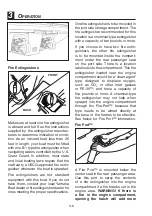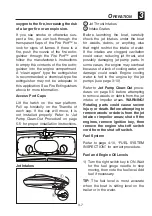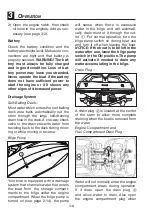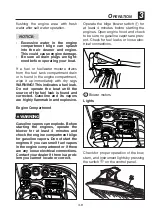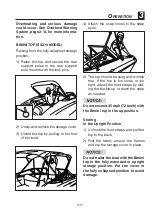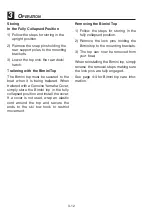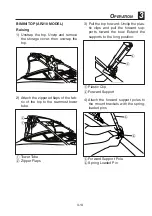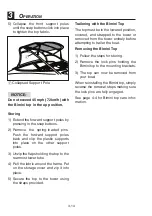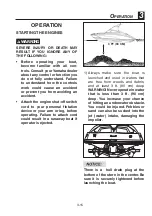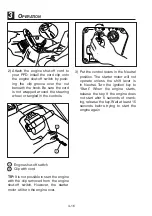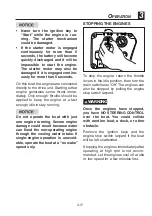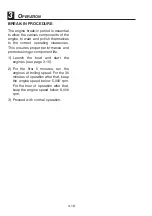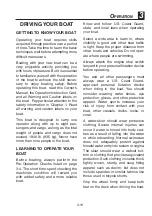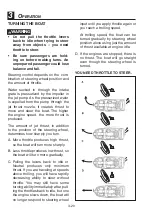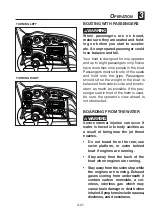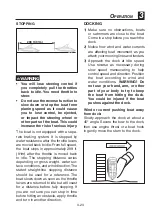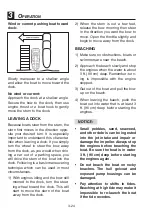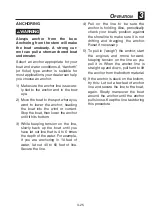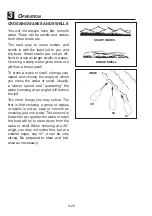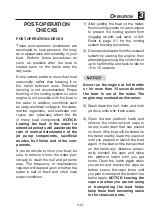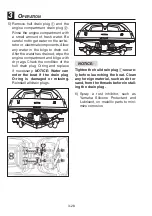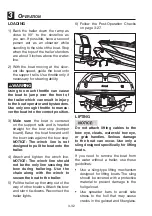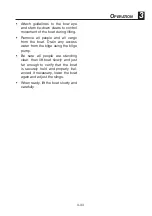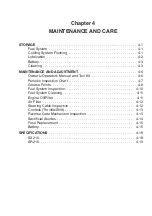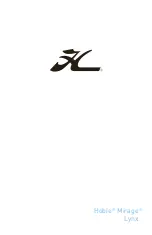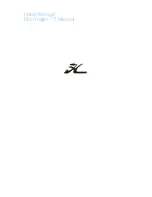
3
O
PERATION
3-20
TURNING THE BOAT
• Do not pull the throttle levers
back to idle when trying to steer
away from objects – you need
throttle to steer.
• Be sure passengers are hold
-
ing on before making turns. An
unprepared passenger could lose
balance and fall.
Steering control depends on the com-
bination of steering wheel position and
the amount of throttle.
Water sucked in through the intake
grate is pressurized by the impeller in
the jet pump. As the pressurized water
is expelled from the pump through the
jet thrust nozzle, it creates thrust to
move and steer the boat. The higher
the engine speed, the more thrust is
produced.
The amount of jet thrust, in addition
to the position of the steering wheel,
determines how sharply you turn.
A. More throttle produces high thrust,
so the boat will turn more sharply.
B. Less throttle produces low thrust, so
the boat will turn more gradually.
C. Pulling the levers back to idle or
Neutral produces only minimum
thrust. If you are traveling at speeds
above trolling, you will have rapidly
decreasing ability to steer without
throttle. You may still have some
turning ability immediately after pull-
ing the throttles back to idle, but one
the engine slows down, the boat will
no longer respond to steering wheel
input until you apply throttle again or
you reach a trolling speed.
At trolling speed, the boat can be
turned gradually by steering wheel
position alone using just the amount
of thrust available at engine idle.
D. If the engines are stopped, there is
no thrust. The boat will go straight
even though the steering wheel is
turned.
YOU NEED THROTTLE TO STEER.
WARNING

